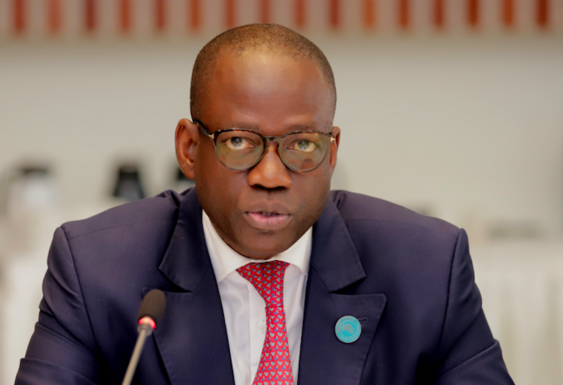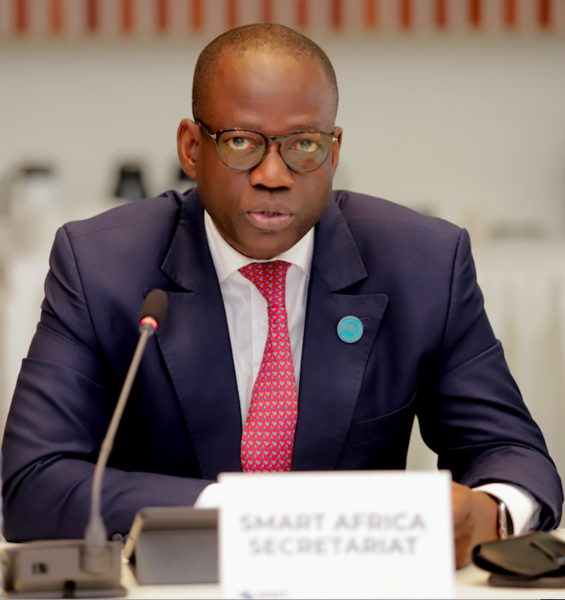Smart Africa’s New Boss Has Big Ambitions For The Continent’s ICT Agenda


Smart Africa gets a new boss, taking over at a time when the continent is having high expectations for Information Communication Technology (ICT) and development. The secretariat must grow ICT investments and accelerate taking up of technology across Africa. Additionally, Africans have high expectations that the Smart Africa Alliance organization will also seek to increase its membership from the current 24 African countries to include even more. This is in order that the organization can have greater impact in Africa.
Smart Africa is an alliance and a commitment by heads of states and governments in Africa. The aim is to accelerate sustainable socio-economic development in Africa. It also seeks to propel Africa into a knowledge-based economy via affordable access to Broadband and usage of ICT.
Last week, Dr Hamadoun Toure handed over the mantle to Lacina Kone as the Executive Director of Smart Africa Alliance. This is an alliance organization that uses the power of ICT to drive the African development agenda. Among the huge task ahead for the new boss is to foster an environment that will entice all other members of the African Union. This is in order for them to join the Smart Africa entity.
Smart Africa Alliance under Lacina Kone
Kone is the new Alliance’s boss hailing from Ivory Coast. He joins the Alliance with many ambitions that include creating a single digital market in Africa, an agenda that was launched last year in the continent. This is a development agenda created in order to rip down all borders in Africa such that the final result will be a one-Africa market. Additionally, the agenda entails creating a single African digital identity and a blockchain technology for money transfers. These important development issues will also require participation of the private sector in Africa in areas of investments.
Starting off his career in 1991, Kone holds two Masters Degrees with more than 20 years experience in ICT development. He has served in various capacities including head of technology organizations such as Intelsat, CVT Global as well as Booz Allen Hamilton. Additionally, he has been the Digital Economy Advisor to the Prime Minister. He is also the advisor of Benin government in areas of ICT. This shows that the Alliance is getting a competent boss and therefore increased expectations and hopes for development in ICT.
The Big Tasks Ahead for Kone in Smart Africa
The Smart Africa Alliance has a unique approach to its operations. The model of operations involves each member country taking up one flagship program in order to spearhead. Additionally, each country then shares the approaches, blueprints, and practices it uses in the program with other countries in Africa. This sharing makes the member states to learn in return. The new boss will lead in this task to ensure that these blueprints are documented and the countries are adopting them.
“I will seek to continue implementing the roadmap of the organization,” Kone said. This is while acknowledging the urgency of creating unity and a one voice for Africa. Especially in issues relating to internet penetration and affordability for example.
“If you look at, say, the initial internet cost in Rwanda, it’s about $8 per megabyte and it’s about $60 for the same in Ivory Coast which has access to the ocean. Ghana, which neighbors Ivory Coast, has about half the cost. We need to have very serious conversations about such things with a unified voice,” he said.
Other Tasks in the Smart Africa Alliance
Other tasks that are hot in his to do list include facilitating one Africa network. The network will enable users enjoy free roaming services on the continent. Additionally, he will ensure that the continent has increased number of exchange points in order to reduce the expenses and foster better user experience.
The outgoing director Smart Africa Alliance, Toure has been in the office since 2015. During this time, he oversaw the founding of the alliance. Additionally, he saw the increase of member countries from the initial nine during inauguration to the present 24. It is also through under his leadership that the alliance got a total of 41 private sector partners in investment.







Responses